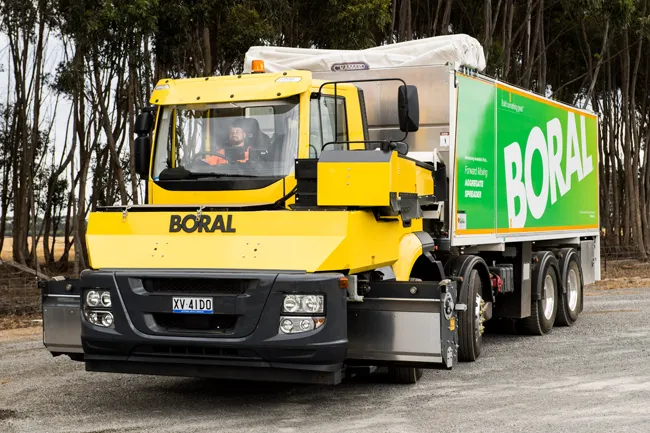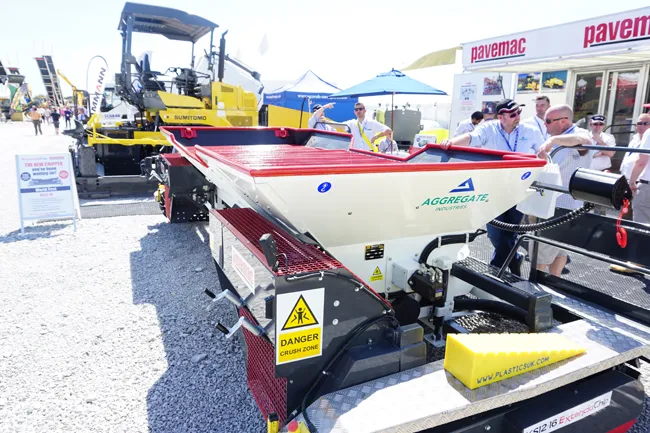
Construction materials group
The Boral FMAS - Forward Moving Aggregate Spreader – will make the method of spray seal road construction in Australia much easier, according to the two companies.
Until now, the process involved road crews working with reversing trucks that applied the aggregate through an elevated tipper body, increasing the safety risks to workers.
To improve safety and maximise visibility, the FMAS disperses aggregate from the front of the truck via a conveyor belt and spreader box. This reduces the spreading time and “significantly reduces any potential infrastructure and overhead damage such as contacting power lines, trees and bridges”.
The maximum operating weight of the truck is 27,500kg while its height is 3.4m to the top of the covering tarpaulin. The length is almost 11m and the working width is between 2.5-3.6m.
Aggregate discharging rates are electronically coupled to the truck’s road speed which is up to 7km/h. It is suitable for aggregates of 4mm, 7mm, 10mm and 14mm.
The launch was held at the National Transport Research Centre with the headquarters of the Australian Road Research Board (ARRB) in Port Melbourne. Stuart Partridge, Boral’s national asset manager for the asphalt business, said the spreader was designed following a call to industry by the Victorian Roads Authority after a serious accident involving a
“Surfacing roads has remained one of the most potentially challenging tasks faced by construction crews because of the nature of the material being used and the way that material is applied,” he said. “Rollover accidents, blind spots and high reversing tippers that can be at risk of interfering with power lines or overhanging trees are just some of the problems associated with the current range of spreaders.
“So, the task here was to come up with a solution to improve safety for road crews, including drivers, while at the same time making the process quicker, more efficient with higher quality,” he said.
The design of the spreading unit allows locally manufactured and approved trucks to be substantially modified while still meeting regulatory standards. “VicRoads has mandated that forward moving aggregate spreaders should be in use on all its projects by 2022 – a move we hope will be followed by other state road authorities nationally,” he said.
“As a local manufacturer with an extensive engineering centre in Melbourne, we were able to advise Boral on the best IVECO platform on which to build their vehicle – the Stralis AD 8x4 – and offer support during development,” said Bruce Healy, managing director of Iveco Australia.








